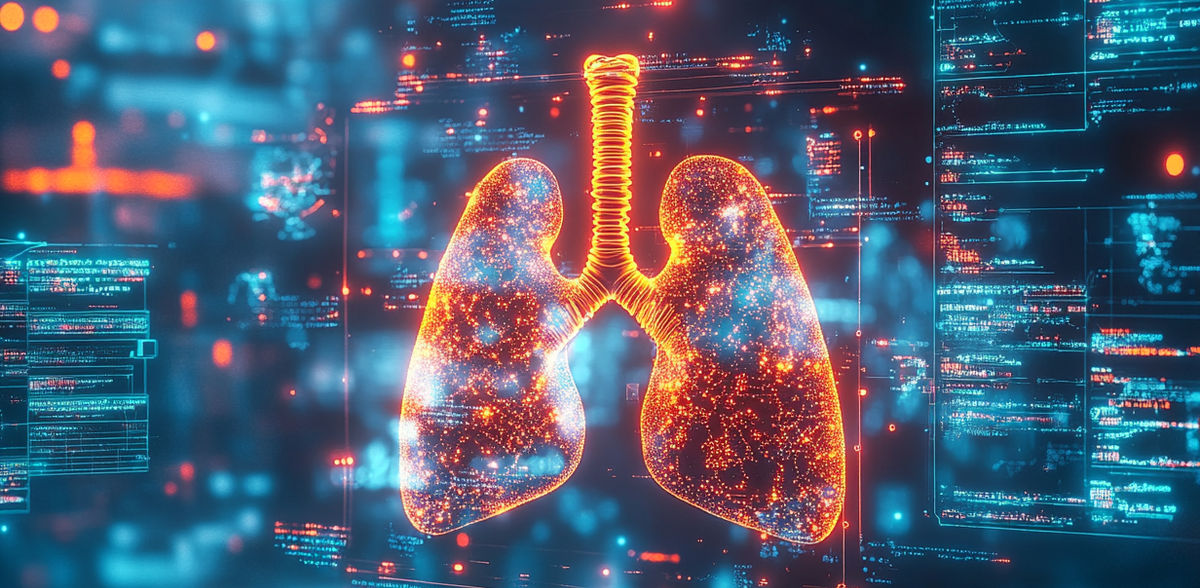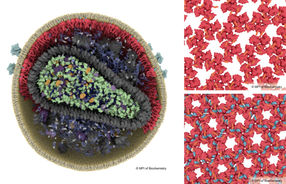Artificial intelligence improves lung cancer diagnosis
New AI-based digital platform enables extremely fast and accurate analysis of tissue sections from lung cancer patients
A team of researchers from the University of Cologne’s Faculty of Medicine and University Hospital Cologne, led by Dr Yuri Tolkach and Professor Dr Reinhard Büttner, has created a digital pathology platform based on artificial intelligence. The platform uses new algorithms developed by the team and enables fully automated analysis of tissue sections from lung cancer patients. The platform makes it possible to analyse digitized tissue samples on the computer for lung tumours more quickly and accurately than before. The study ‘Next generation lung cancer pathology: development and validation of diagnostic and prognostic algorithms’ has been published in the journal Cell Reports Medicine.
Lung cancer is one of the most common tumours/cancers in humans and has a very high mortality rate. Today, the choice of treatment for patients with lung cancer is determined by pathological examination. Pathologists can also identify molecularly specific genetic changes that allow for personalized therapy. Over the past few years, pathology has undergone a digital transformation. As a result, microscopes are no longer needed. Typical tissue sections are digitized and then analysed on a computer screen. Digitalization is crucial for the application of advanced analytical methods based on artificial intelligence. By using artificial intelligence, additional information about the cancer can be extracted from pathological tissue sections – something that would not be possible without AI technology.
“We also show how the platform could be used to develop new clinical tools. The new tools can not only improve the quality of diagnosis, but also provide new types of information about the patient’s disease, such as how the patient is responding to treatment,” explained physician Dr Yuri Tolkach from the Institute of General Pathology and Pathological Anatomy at University Hospital Cologne, who led the study.
In order to prove the broad applicability of the platform, the research team will conduct a validation study together with five pathological institutes in Germany, Austria and Japan.
Original publication
Carina Kludt, Yuan Wang, Waleed Ahmad, Andrey Bychkov, Junya Fukuoka, Nadine Gaisa, Mark Kühnel, Danny Jonigk, Alexey Pryalukhin, Fabian Mairinger, Franziska Klein, Anne Maria Schultheis, Alexander Seper, Wolfgang Hulla, Johannes Brägelmann, Sebastian Michels, Sebastian Klein, Alexander Quaas, Reinhard Büttner, Yuri Tolkach; "Next-generation lung cancer pathology: Development and validation of diagnostic and prognostic algorithms"; Cell Reports Medicine
Most read news
Original publication
Carina Kludt, Yuan Wang, Waleed Ahmad, Andrey Bychkov, Junya Fukuoka, Nadine Gaisa, Mark Kühnel, Danny Jonigk, Alexey Pryalukhin, Fabian Mairinger, Franziska Klein, Anne Maria Schultheis, Alexander Seper, Wolfgang Hulla, Johannes Brägelmann, Sebastian Michels, Sebastian Klein, Alexander Quaas, Reinhard Büttner, Yuri Tolkach; "Next-generation lung cancer pathology: Development and validation of diagnostic and prognostic algorithms"; Cell Reports Medicine
Topics
Organizations

Get the analytics and lab tech industry in your inbox
By submitting this form you agree that LUMITOS AG will send you the newsletter(s) selected above by email. Your data will not be passed on to third parties. Your data will be stored and processed in accordance with our data protection regulations. LUMITOS may contact you by email for the purpose of advertising or market and opinion surveys. You can revoke your consent at any time without giving reasons to LUMITOS AG, Ernst-Augustin-Str. 2, 12489 Berlin, Germany or by e-mail at revoke@lumitos.com with effect for the future. In addition, each email contains a link to unsubscribe from the corresponding newsletter.



























































